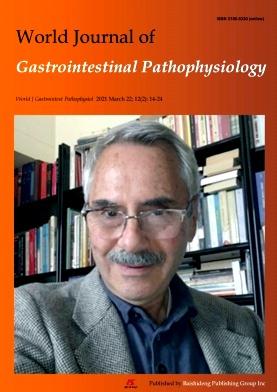Lymphoproliferative disorders in inflammatory bowel disease patients on immunosuppression: Lessons from other inflammatory disorders.
引用次数: 19
Abstract
Immunosuppressive agents, such as thiopurines, methotrexate, and biologics, have revolutionized the treatment of inflammatory bowel disease (IBD). However, a number of case reports, case control studies and retrospective studies over the last decade have identified a concerning link between immunosuppression and lymphoproliferative disorders (LPDs), the oncological phenomenon whereby lymphocytes divide uncontrollably. These LPDs have been associated with Epstein-Barr virus (EBV) infection in which the virus provides the impetus for malignant transformation while immunosuppression hampers the immune system's ability to detect and clear these malignant cells. As such, the use of immunosuppressive agents may come at the cost of increased risk of developing LPD. While little is known about the LPD risk in IBD, more is known about immunosuppression in the post-transplantation setting and the development of EBV associated post-transplantation lymphoproliferative disorders (PTLD). In review of the PTLD literature, evidence is available to demonstrate that certain immune suppressants such as cyclosporine and T-lymphocyte modulators in particular are associated with an increased risk of PTLD development. As well, high doses of immunosuppressive agents and multiple immunosuppressive agent use are also linked to increased PTLD development. Here, we discuss these findings in context of IBD and what future studies can be taken to understand and reduce the risk of EBV-associated LPD development from immunosuppression use in IBD.炎症性肠病患者淋巴增生性疾病对免疫抑制的影响:来自其他炎症性疾病的经验教训。
免疫抑制剂,如硫嘌呤、甲氨蝶呤和生物制剂,已经彻底改变了炎症性肠病(IBD)的治疗。然而,在过去十年中,许多病例报告、病例对照研究和回顾性研究已经确定了免疫抑制与淋巴细胞增生性疾病(lpd)之间的联系,lpd是淋巴细胞不受控制地分裂的肿瘤现象。这些lpd与eb病毒(EBV)感染有关,该病毒为恶性转化提供动力,而免疫抑制阻碍了免疫系统检测和清除这些恶性细胞的能力。因此,免疫抑制剂的使用可能以增加LPD发病风险为代价。虽然对IBD患者的LPD风险知之甚少,但对移植后免疫抑制和EBV相关移植后淋巴增生性疾病(PTLD)的发展了解更多。回顾PTLD文献,有证据表明,某些免疫抑制剂,如环孢素和t淋巴细胞调节剂,与PTLD发生风险增加有关。同样,高剂量的免疫抑制剂和多种免疫抑制剂的使用也与PTLD的增加有关。在此,我们在IBD的背景下讨论这些发现,以及未来的研究可以采取哪些措施来了解和降低IBD中使用免疫抑制药物导致ebv相关LPD发展的风险。
本文章由计算机程序翻译,如有差异,请以英文原文为准。
求助全文
约1分钟内获得全文
求助全文

 求助内容:
求助内容: 应助结果提醒方式:
应助结果提醒方式:


